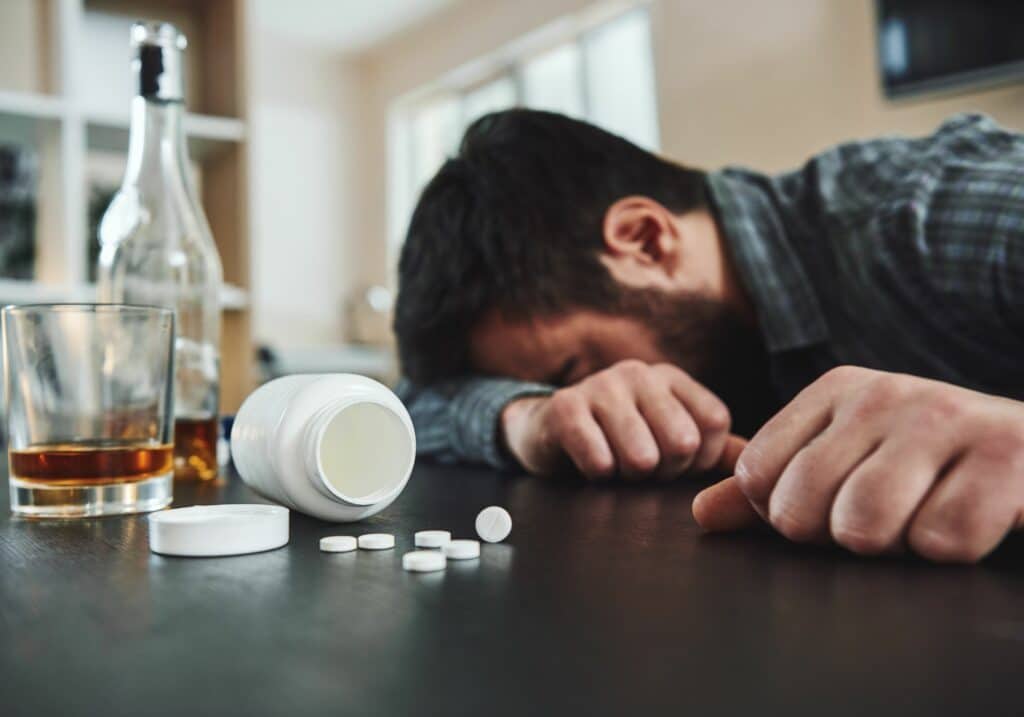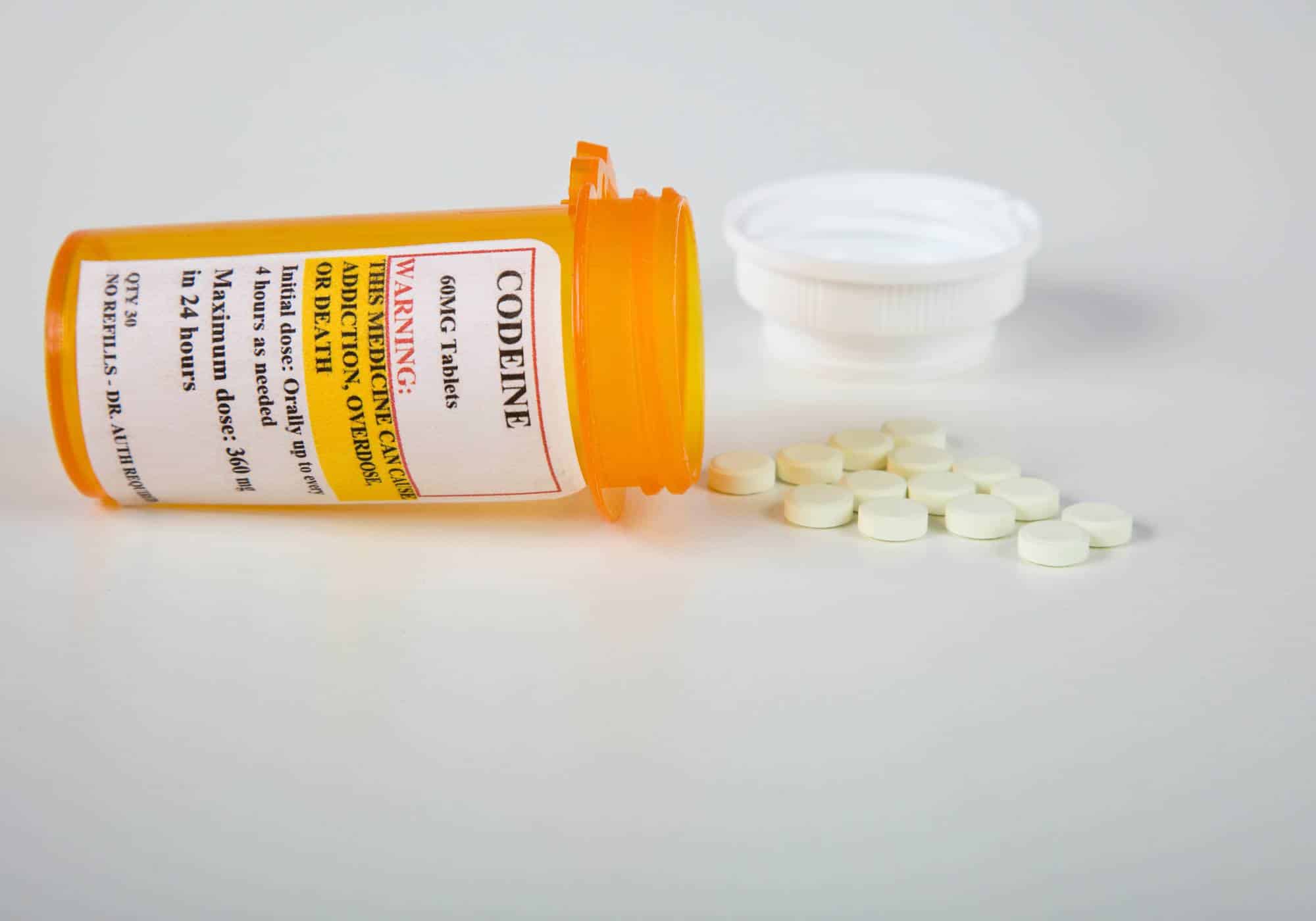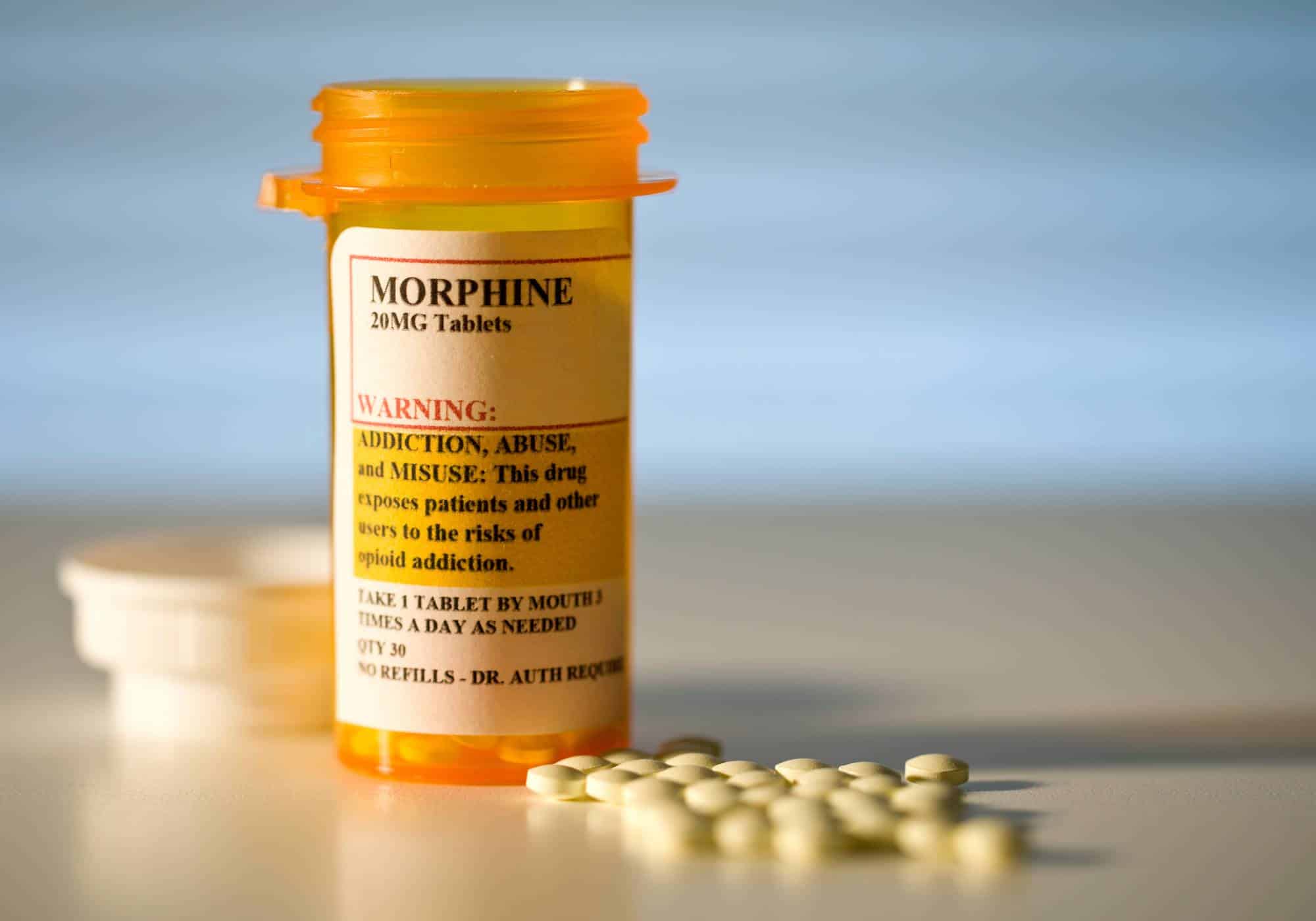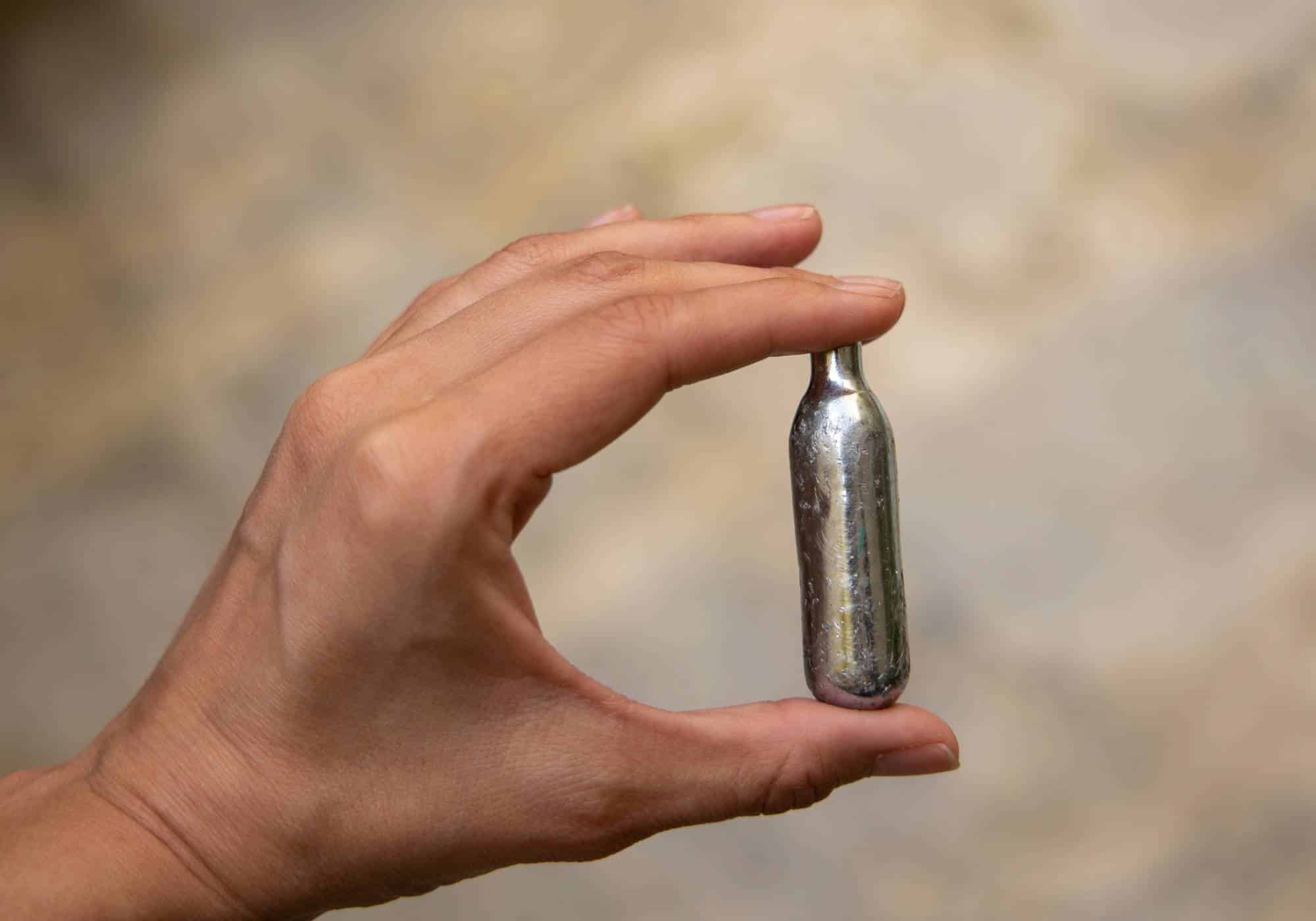A complex challenge lies at the intersection of substance abuse and mental health disorders: Dual Diagnosis. This term describes the co-occurrence of both a substance use disorder and another mental health disorder, such as depression, anxiety, or bipolar disorder.
In Atlanta, GA, dual diagnosis is a pressing concern. It’s estimated that 25-50% of individuals grappling with substance addiction also face a co-existing mental health disorder. Such statistics emphasize the urgency of addressing dual diagnosis with precision, care, and expertise. At Hope Harbor Wellness we offer evidence-based and specialized dual diagnosis treatment for individuals struggling with co-occurring disorders.
Find The Best Dual Diagnosis Treatment in Atlanta, Georgia
Struggling with Dual Diagnosis? Hope Harbor Wellness is Here to Help.
Juggling the complexities of addiction along with additional mental health challenges like anxiety, depression, or bipolar disorder can be an overwhelming experience. This co-existence is what we term a dual diagnosis. At Hope Harbor Wellness, our dual diagnosis treatment plans are intricately designed to empower and support those facing both substance addiction and simultaneous mental health issues, ensuring a path to holistic recovery.
It’s vital to understand that addiction itself poses a significant mental health concern, often intersecting with other mental disorders. Recognizing this interconnectedness is paramount. Often, individuals turn to substances to self-medicate against psychological distress, only to find themselves sinking deeper into addiction and exacerbating their mental health issues.
What Is Dual Diagnosis?
When mental health issues intertwine with addiction, it’s often a complex relationship. Sometimes the mental disorder paves the way for addiction; other times, addiction sparks the onset of another mental ailment. Dual diagnosis is this intricate interplay between two concurrent mental health conditions, often with addiction being one of them.
Recognizing the signs of co-occurring disorders can be a lifesaver. Here are some pivotal indicators:
- History of Mental Illness or Addiction in the Family Family plays a significant role in shaping our psychological and emotional foundation. Genetics, coupled with environmental factors from our family upbringing, can increase susceptibility to both addiction and mental health disorders. Furthermore, genetic predispositions can mean that some individuals are more prone to developing certain mental health conditions, which can further be exacerbated by substance abuse.
- Emotional Equilibrium and Substance Reliance Emotional equilibrium refers to the balanced state of one’s emotions, where one can handle the daily stresses and strains without significant distress. When individuals start to lean heavily on substances to attain this balance, it can indicate an underlying mental health issue. The substances can offer a temporary escape, a moment of “relief” from unsettling feelings or thoughts. Over time, this reliance on external agents for internal peace can become a dangerous cycle, making the mental health condition worse and deepening the addiction.
- The Impact of Traumatic Experiences Trauma can significantly trigger both substance use and mental health disorders. Individuals who’ve faced traumatic events often grapple with feelings of helplessness, confusion, and fear. These overwhelming emotions can lead someone to use substances to numb or forget these feelings. Conversely, the trauma can also precipitate mental health conditions like post-traumatic stress disorder (PTSD), depression, or anxiety. In trying to cope with the symptoms of these disorders, some might turn to drugs or alcohol, leading to a dual diagnosis scenario.
- Decoding Usage Patterns Patterns in substance usage can provide valuable insights into the presence of an underlying mental health condition. For example, someone using alcohol every time they are anxious might be hinting at an undiagnosed anxiety disorder. Similarly, using drugs to elevate mood consistently might be masking underlying depression. Recognizing these patterns early on can be instrumental in intervening and breaking the cycle before it spirals further.
The path to a dual diagnosis is often not linear. Substance abuse can exacerbate an existing mental health disorder, or a mental health condition can lead to substance misuse as a coping mechanism. Similarly, shared risk factors, like a traumatic experience or a family history, can play a role in the onset of both conditions. Given this intricate relationship, it’s essential to approach dual diagnosis with a comprehensive, nuanced perspective, ensuring all facets of the individual’s health are addressed.
What Causes Dual Diagnosis?
The connection between substance use disorders and psychiatric disorders is complex and multifaceted, with no definitive evidence to suggest a direct causal relationship between the two. Despite ongoing research, the exact reasons why co-occurring addiction and mental health issues are so common remain unclear. However, three key theories are commonly considered in the field:
- Shared Risk Factors Between Substance Use Disorders and Mental Health Disorders: Substance use disorders and mental health conditions, though distinct in nature, often share overlapping risk factors, such as:
- Genetics: The susceptibility to addiction is believed to be 40%-60% influenced by genetics. Similarly, major mental health conditions also have genetic links. For example, depression and anxiety disorders have a heritability of about 20%-45%, while bipolar disorder and schizophrenia show over a 75% genetic predisposition.
- Stress: Stress is a known catalyst for both addiction and relapse, and it can exacerbate symptoms of existing mental health conditions, as outlined by the National Alliance on Mental Illness (NAMI).
- Trauma: Traumatic experiences frequently contribute to addiction and can also lead to mental health issues such as PTSD (post-traumatic stress disorder).
- Genetics: The susceptibility to addiction is believed to be 40%-60% influenced by genetics. Similarly, major mental health conditions also have genetic links. For example, depression and anxiety disorders have a heritability of about 20%-45%, while bipolar disorder and schizophrenia show over a 75% genetic predisposition.
Mental Health Disorders Potentially Leading to Substance Use Disorders: Many individuals with mental health issues, particularly undiagnosed conditions, might resort to self-medicating with alcohol or drugs. While this might provide temporary relief, it leaves the underlying mental health issue unaddressed and could worsen it over time. This behavior can increase the risk of developing alcohol or substance use disorders. Moreover, mental health disorders can alter brain chemistry and function, potentially increasing the likelihood of addiction. This area requires further exploration and research.
Substance Use as a Trigger for Mental Health Disorders: There are instances where substance abuse itself may trigger mental health conditions. For instance, long-term marijuana use has been linked to increased negative emotions and a higher risk of psychosis, especially for those who start using at a young age. Additionally, some individuals develop depression or anxiety disorders following the onset of an alcohol or substance use disorder.
How Common is Dual Diagnosis?
National data underscores the alarming overlap between substance abuse and mental health disorders. A staggering 38% of individuals grappling with addiction also exhibit signs of mental health disorders. Conversely, roughly 18% of those with a diagnosed mental health disorder at some point contend with substance misuse. The dual manifestation of these disorders, termed “comorbidity,” paints a concerning picture.
Recent statistics hint that almost 9.5 million Americans in 2019 were wrestling with addiction and discernible mental health disorders. It’s worth noting that the majority affected are males. The interplay between severe mental conditions, which drastically impact daily life, and substance abuse is equally noteworthy. A significant 43% seeking treatment for prescription drug misuse are also burdened with mental health disorders, notably depression or anxiety.
Drug Addiction Can Be Defined As A Mental Illness
Substance abuse can profoundly alter brain chemistry, influencing thought patterns, physical health, and interactions with the environment. This is particularly true for individuals grappling with mental health disorders, as the substances they might use impact the very parts of the brain already under siege by their condition.
Those battling addiction face relentless urges and compulsions to use, often despite a clear understanding of the negative consequences. This overpowering need for the substance can eclipse all else, necessitating professional treatment to break the cycle.
Initially, drugs or alcohol might seem like solace, a self-prescribed remedy to the symptoms of a mental disorder. However, over time, this self-medication often exacerbates the very problems it was meant to soothe, creating a vicious cycle. What may offer temporary relief can lead to long-term detriment, further aggravating both mental and physical health issues.
Acknowledging the intertwined nature of addiction and mental health is crucial. Without addressing both, the spiral of dependency and mental distress continues unimpeded. Seeking comprehensive treatment is essential for those caught in this destructive loop, as it offers a path to reclaiming control over their health and well-being.
Signs and Symptoms of Dual Diagnosis
Dual diagnosis presents a complex interplay between substance addiction and a mental health disorder, each with its unique set of symptoms that may intertwine and exacerbate each other. Understanding these symptoms is critical for crafting an effective treatment strategy.
Substance dependency often reveals itself through:
- Withdrawal from social circles, where one increasingly shuns the company of friends and family.
- Concentration issues, with an apparent difficulty in focusing on tasks at hand.
- Sudden behavioral changes, which may include uncharacteristic actions or mood swings.
- Engagement in perilous activities, reflecting a lack of regard for safety or consequences.
- Increased tolerance and withdrawal symptoms, marked by a need for higher substance doses and physical discomfort when attempting to quit.
- Dependence, where the substance becomes central to one’s daily routine just to feel normal.
Concurrently, mental health disorders may manifest through:
- Volatile emotional states, with moods that swing unpredictably.
- Confusion, leading to feelings of bewilderment or a loss of one’s sense of reality.
- Disrupted concentration, where it becomes a challenge to stay focused or think clearly.
- Diminished performance, affecting one’s ability to function at work or school.
- Avoidance of social interaction, preferring isolation over engagement with others.
- Suicidal ideation, including persistent thoughts about or actual planning of self-harm.
Identifying these signs is the first step toward a comprehensive dual diagnosis treatment. Hope Harbor Wellness stands ready to support individuals facing these challenges with expert care. If these symptoms resonate with you or someone close to you, please reach out to us for dual diagnosis treatment in Atlanta and on starting a path to recovery.
Risk Factors of Dual Diagnosis
Delving into the root causes of dual disorders, one finds intricate interplay among brain functionality, genetics, and environmental stimuli. Factors such as early exposure to substances, histories of trauma, neglect, or residing in socio-economically challenged areas can act as potent triggers. The onset of early mental health challenges or substance consumption during developmental years can also amplify risks, given that areas of the brain responsible for decision-making and impulse control mature last.
Commencing substance consumption early in life or early onset of mental health challenges also significantly heightens the risks. This can be attributed to the fact that impulse regulation and decision-making capabilities are among the last to mature in brain development.
It’s pivotal to note that risk factors don’t necessarily guarantee the onset of dual disorders. Equally, their absence doesn’t ensure immunity. Dual disorders are indiscriminate, impacting individuals across age groups, racial and ethnic backgrounds, socio-economic strata, and cultural or religious affiliations.
What Comes First Mental Health Condition or Substance Abuse?
Determining the primary condition in a dual diagnosis scenario — whether the substance abuse or the mental health issue came first — can be a complex puzzle. In many instances, these conditions develop independently but become interwoven over time, each influencing the severity and course of the other.
Several factors may contribute to the intersection of substance use disorders (SUDs) and mental health conditions:
- Shared genetic vulnerabilities may predispose individuals to both SUDs and certain mental health conditions, suggesting a hereditary component that spans both.
- People often turn to alcohol or drugs in an attempt to self-medicate the difficult symptoms of mental health disorders, inadvertently paving the way for addiction.
- Some mental health disorders involve changes in brain chemistry that may heighten the rewarding sensation of substance use, potentially kickstarting a cycle of dependency.
- Conversely, chronic substance use can lead to significant changes in brain structure and function, which may trigger or exacerbate mental health problems.
At Hope Harbor Wellness, we recognize the intertwined nature of these conditions. Our dual diagnosis treatment program in Atlanta, GA are designed to address both the symptoms of addiction and the underlying mental health issues, promoting a comprehensive and sustainable recovery. With a tailored approach, we aim to help individuals navigate the complexities of co-occurring disorders and move towards a healthier future.
Benefits of Dual Diagnosis Treatment Program
Engaging in a dual diagnosis treatment program offers numerous benefits, including:
Reduced Risk of Relapse: By uncovering and addressing the underlying factors of substance abuse and emotional struggles, individuals in recovery can better understand the root causes of their addiction. This deeper insight allows them to recognize and avoid triggers that might otherwise lead to relapse.
Tailored Treatment Plans: Dual diagnosis treatment programs provide the opportunity to create customized treatment strategies. At Hope Harbor Wellness, our team is dedicated to developing plans that are specifically aligned with each individual’s unique needs and circumstances.
Cost-Effectiveness: Opting for a dual diagnosis treatment program can be more economical compared to other treatment modalities. Hope Harbor Wellness acts as a comprehensive treatment center, offering a wide range of necessary services under one roof. This approach helps avoid the extra costs associated with receiving overlapping services from multiple providers.
By choosing a dual diagnosis treatment approach, individuals can benefit from a more holistic and integrated path to recovery, addressing both their addiction and any co-occurring mental health issues.
Hope Harbor Wellness’s Expertise in Treating Dual Diagnosis:
At Hope Harbor Wellness, our expertise extends across a vast spectrum of disorders
- Anxiety: We offer holistic solutions for anxiety intertwined with addiction.
- Bipolar Disorder: Our therapies seamlessly address bipolar disorder alongside substance misuse.
- Depression: We provide enduring solutions for depression coexisting with addiction.
- PTSD Individuals dealing with PTSD and addiction receive specialized care.
- Self-Harm We offer bespoke interventions for those contemplating self-harm amid addiction.
- Trauma: Our therapies delve deep into trauma-induced challenges that coexist with addiction.
- Thought Disorders Our expert interventions cater to thought disorders overlapping with substance abuse.
If you or a loved on are struggling with addiction and mental health, don’t hesitate and call us today at 678-821-2081 to being your dual diagnosis treatment in Atlanta, GA today.
Diagnosing Dual Diagnosis
Dual diagnosis presents a unique challenge for both diagnosis and treatment, as it involves the intersection of substance use disorders and mental health conditions. The overlapping symptoms of these co-occurring disorders can mask each other, making a clear diagnosis complex. Understanding and identifying each separately is critical to developing an effective treatment plan.
At Hope Harbor Wellness, the journey to managing dual diagnosis begins with a thorough assessment conducted by our expert mental health professionals. This initial evaluation is comprehensive, delving into the individual’s health history, substance use patterns, and the breadth of their symptoms. It’s a process of discovery that allows our team to distinguish between the nuances of each disorder.
Our approach is meticulous and empathetic, ensuring that each individual receives a personalized plan that addresses the dual nature of their diagnosis. By acknowledging the intertwining of mental health and substance abuse, we forge a path to recovery that is both informed and sensitive to the individual needs of our clients. Our commitment to evidence-based treatment and compassionate care is the cornerstone of our strategy in helping individuals navigate their dual diagnosis treatment at our center.
Treatment for Dual Diagnosis
Effective management of dual diagnosis demands an integrated treatment strategy that tackles both the mental health disorder and the substance use issue concurrently. This holistic approach is crucial as it addresses the complexities of co-occurring conditions, often leading to more successful outcomes.
The treatment journey at Hope Harbor Wellness begins with working with a detox facility to provide supervised medical detox, followed by a series of therapeutic interventions tailored to the individual’s needs. Medications may be prescribed as part of the management plan to stabilize mood and reduce cravings. Additionally, our treatment embraces the therapeutic power of community through group sessions and self-help groups, reinforcing recovery with the support of peers.
Family therapy is another pillar of our dual-diagnosis treatment, helping to heal relationships and ensure a supportive home environment. The comprehensive treatment plan at Hope Harbor Wellness may include a diverse array of therapies and services, such as:
- Cognitive Behavioral Therapy (CBT) for restructuring negative thought patterns
- Dialectical Behavior Therapy (DBT) for emotion regulation
- Consistent medication management for ongoing stability
- Group Therapy for shared experiences and support
- Individual Therapy for personalized attention and care
- Holistic therapies like yoga and meditation for overall well-being
- Advanced Neurofeedback Therapy for brain health
- Soothing Biosound Therapy
- Healing Red Light Therapy
- Insightful Genetic Testing for personalized treatment insights
- Psychiatry services for comprehensive mental health care
- Engaging Experiential Therapy for practical life skills
Our integrative model means that we treat the whole person, considering how mental health and addiction interplay and affect the individual’s life. By fostering growth in all areas, we aim to guide our clients toward a fulfilling and sustained recovery free of addiction and mental health issues. Call us today for dual diagnosis treatment in Atlanta and on starting your path to recovery.
Does Insurance Cover Dual Diagnosis Treatment?
When considering dual diagnosis treatment, one of the first questions many individuals have revolves around insurance coverage. The good news is that health insurance often provides financial support for this type of treatment, but the extent of coverage can depend on several factors:
- The insurance provider you’re with and the specific terms of your policy.
- The nuances of your plan, which may dictate the extent of coverage for different treatment modalities.
- The dual diagnosis treatment center you choose and whether it aligns with your insurer’s network.
- The particular treatment services and interventions that your situation necessitates.
To understand the coverage available to you, it’s vital to review your policy details or speak directly with your insurance provider. They can clarify what treatments are covered, any deductibles that apply, and whether the facility you’re considering is within their network. At Hope Harbor Wellness, we can assist with insurance verifications by calling our admissions team to streamline your journey toward beginning treatment or by filling out our online insurance verification form.
How Long Is the Average Length of Dual Diagnosis Treatment?
Dual diagnosis treatment is a delicate and intricate process, requiring a pace that respects the individual journey of each patient. Standard rehabilitation programs often suggest a stay of 30 to 40 days; however, when addressing the intertwined challenges of addiction and mental health disorders, this timeframe may not suffice for deep and lasting healing.
Extended treatment programs, which allow for longer stays, often yield more robust and enduring recovery outcomes. This is because they provide ample time to address the complexities of dual diagnosis in a comprehensive and unhurried manner. A 90-day treatment window is frequently recommended as it offers a substantial period for patients to engage with various therapeutic interventions, solidify their coping strategies, and stabilize their mental health in a supportive environment.
The unique nature of each individual’s dual diagnosis means that some may benefit from shorter or longer durations of care. The key is a personalized approach, one that aligns with the patient’s specific needs, progress, and readiness for transitioning back into daily life. At Hope Harbor Wellness, we evaluate and adjust treatment lengths to best suit our clients, ensuring they receive best dual diagnosis treatment necessary for profound and sustainable recovery.
Effective Treatment for Dual Diagnosis in Atlanta
Living with a dual diagnosis can be a complex struggle, often placing the life you aspire to out of reach. If this resonates with you or someone close to you, take heart—assistance is within reach. At Hope Harbor Wellness we provide dual diagnosis treatment centers in Atlanta and are dedicated to guiding individuals through the intricacies of both mental health and substance use challenges. Our team of experts employs proven, research-backed methods to foster recovery in an environment that’s both secure and free from outside pressures.
Embark on your journey to wellness by contacting our admissions team or visiting our contact page. Begin the transformative process of dual diagnosis treatment and take the first step towards reclaiming your well-being today.













